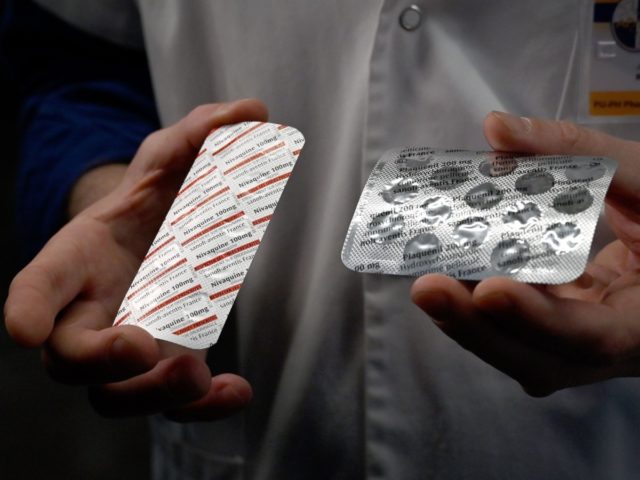Posts Tagged ‘Chloroquine’
2005 – In the Delingpole, Chloroquine Known as Effective Against Coronavirus
The world economy is collapsing because of the terror and mounting death toll caused by the Coronavirus pandemic. But the anti-malarial drug chloroquine is effective both as a prophylactic and treatment for the virus – and the medical establishment has known about this since at least the SARS coronavirus outbreak in 2005. What the hell is going on?
Yesterday, I reported the existence of three studies, all claiming that chloroquine phosphate had proved effective in treating the COVID-19.
This has since been confirmed by a more recent open-label non-randomised clinical trial in France by Didier Raoult M.D/Ph.D et al, completed just days ago. The sample was small but the results were convincing.
As the summary reports:
100% of patients that received a combination of HCQ and Azithromycin tested negative and were virologically cured within 6 days of treatment.
In addition, recent guidelines from South Korea and China report that hydroxychloroquine and chloroquine are effective antiviral therapeutic treatments for novel coronavirus.
But the story gets more extraordinary still. It turns out that the Centers for Disease Control and Prevention (CDC) has known since at least 2005 that chloroquine is effective against coronaviruses.
Chloroquine is a potent inhibitor of SARS coronavirus infection and spread
Abstract as posted on the NCBI website
Background
Severe acute respiratory syndrome (SARS) is caused by a newly discovered coronavirus (SARS-CoV). No effective prophylactic or post-exposure therapy is currently available.
Results
We report, however, that chloroquine has strong antiviral effects on SARS-CoV infection of primate cells. These inhibitory effects are observed when the cells are treated with the drug either before or after exposure to the virus, suggesting both prophylactic and therapeutic advantage. In addition to the well-known functions of chloroquine such as elevations of endosomal pH, the drug appears to interfere with terminal glycosylation of the cellular receptor, angiotensin-converting enzyme 2. This may negatively influence the virus-receptor binding and abrogate the infection, with further ramifications by the elevation of vesicular pH, resulting in the inhibition of infection and spread of SARS CoV at clinically admissible concentrations.

